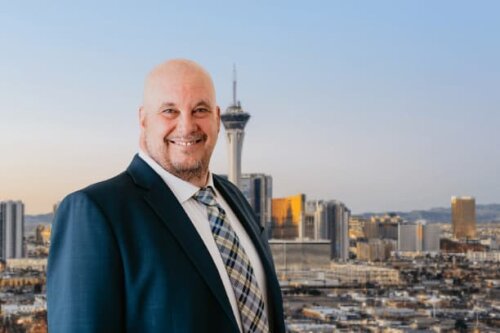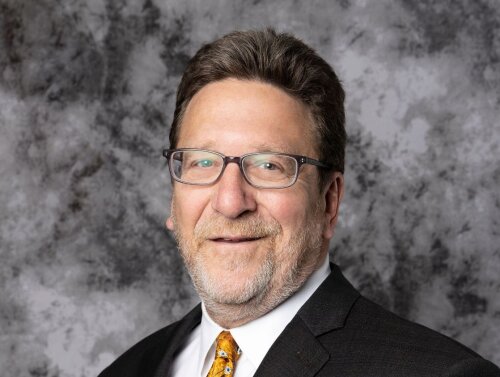Best Nursing Home Abuse Lawyers in Las Vegas
Share your needs with us, get contacted by law firms.
Free. Takes 2 min.
List of the best lawyers in Las Vegas, United States
About Nursing Home Abuse Law in Las Vegas, United States
Nursing home abuse covers physical abuse, sexual abuse, emotional or psychological abuse, neglect, financial exploitation, and violations of residents rights in long-term care facilities. In Las Vegas, Nevada, residents are protected by a mix of federal laws that set minimum care and safety standards for Medicare and Medicaid-certified facilities and state laws that govern licensing, reporting, investigation, and civil and criminal remedies. When abuse or neglect occurs, survivors and family members may pursue administrative complaints, criminal charges, and civil lawsuits to seek accountability, compensation, and improved care.
Why You May Need a Lawyer
Many situations involving nursing home abuse require legal help to navigate complex medical, regulatory, and evidentiary issues. Common situations include:
- Serious injury or death of a resident that appears preventable or caused by facility conduct.
- Signs of physical abuse, sexual assault, or severe neglect resulting in medical treatment.
- Financial exploitation or theft of a residents assets or benefits.
- Repeated incidents or systemic problems suggesting facility-wide staffing, training, or policy failures.
- Administrative complaints that are unresolved and you want to pursue civil remedies or monetary damages.
- Conflicts over discharge, involuntary transfer, or retaliatory actions by facility staff after a complaint.
A lawyer experienced in elder abuse and nursing home litigation can evaluate your case, preserve evidence, guide you through administrative reporting and lawsuits, negotiate with insurers, and represent you at trial if necessary. Attorneys also coordinate with medical experts and advocate for ongoing care and safety for the resident.
Local Laws Overview
Key legal frameworks and enforcement mechanisms relevant in Las Vegas include federal and state systems working together:
- Federal Standards - Facilities that receive Medicare or Medicaid must follow federal rules under the Nursing Home Reform Act and Centers for Medicare and Medicaid Services - these rules cover resident rights, staffing, care plans, abuse prevention, and mandatory reporting of abuse and neglect.
- State Licensing and Oversight - Nevada licenses and inspects nursing homes and long-term care facilities. State surveys enforce health and safety standards and may impose penalties, corrective action plans, fines, or even closure for serious violations.
- Mandatory Reporting - Nevada has requirements that certain professionals and facility staff report suspected abuse or neglect of vulnerable adults to designated authorities such as Adult Protective Services and licensing bodies. Failure to report can carry civil or criminal consequences.
- Criminal Law - Physical abuse, sexual assault, financial exploitation, and severe neglect can lead to criminal charges under Nevada law. Criminal prosecutions are handled by local prosecutors and can result in imprisonment, fines, and other penalties.
- Civil Remedies - Victims and families can bring civil lawsuits for negligence, intentional torts, breach of fiduciary duty, or violations of residents rights. Civil claims can seek compensatory damages for medical bills, pain and suffering, emotional distress, and punitive damages in cases of willful or malicious conduct.
- Statutes of Limitation - Time limits apply to file civil suits. In Nevada, personal injury and wrongful death claims generally must be filed within a statutory period that can be relatively short. Exceptions and tolling rules may apply, so timely consultation with an attorney is important.
- Ombudsman and Advocacy - Nevada operates an Ombudsman program for long-term care residents that investigates complaints and advocates for residents rights. The Ombudsman cannot provide legal representation but can help with complaints and system navigation.
Frequently Asked Questions
How do I recognize nursing home abuse or neglect?
Common signs include unexplained bruises, cuts, fractures, bedsores, sudden weight loss, dehydration, poor hygiene, withdrawn behavior, unusual financial transactions, missing personal items, and statements by the resident suggesting mistreatment. Sudden deterioration in a residents health without a clear medical cause is also a red flag.
Who should I contact first if I suspect abuse in a Las Vegas nursing home?
If the resident is in immediate danger call local emergency services right away. For non-emergencies, report suspected abuse to Adult Protective Services, the facility administrator, and the state licensing survey agency. You can also contact the long-term care Ombudsman to report complaints and seek advocacy.
Can I file a criminal complaint and a civil lawsuit at the same time?
Yes. Criminal investigations are separate from civil claims. A criminal prosecution does not prevent a civil lawsuit, and a civil case can proceed whether or not criminal charges are filed. Attorneys often coordinate with prosecutors but focus on different outcomes - criminal penalties versus civil compensation.
What kinds of damages can I seek in a nursing home abuse case?
Potential damages include past and future medical expenses, pain and suffering, emotional distress, loss of companionship or consortium for families, incidental costs such as relocation, and in some cases punitive damages for particularly egregious conduct. Financial recovery for exploitation may include restitution of stolen funds.
How long do I have to file a lawsuit in Nevada?
Time limits vary by claim type and circumstances. Nevada generally has relatively short statutes of limitation for personal injury and wrongful death claims, and there are special rules for actions against government entities and for discovery of hidden abuse. Speak with an attorney promptly to preserve your rights and avoid missing deadlines.
What evidence should I preserve to support a claim?
Preserve medical records, incident reports, photographs of injuries, witness names and contact information, security camera logs if possible, billing records showing medical treatment, financial records for suspected exploitation, and a contemporaneous written account of events. Ask the facility for copies of the residents chart and incident reports and request they preserve surveillance footage.
Will hiring a lawyer make the facility retaliate against the resident?
Retaliation is illegal and facilities must not discharge, transfer, or otherwise penalize residents for making complaints. However concerns about subtle retaliation are understandable. An attorney can take steps to protect the resident, such as notifying regulatory agencies, requesting monitoring, and seeking court orders if the resident faces wrongful discharge or unsafe conditions.
How much does a nursing home abuse lawyer cost?
Many elder abuse lawyers handle claims on a contingency-fee basis, meaning the attorney is paid a percentage of recovery and no fee is due if there is no recovery. Some cases may involve hourly billing or flat fees for specific services. Always discuss fees and costs, including how litigation expenses are handled, before hiring counsel.
What role does the long-term care Ombudsman play?
The Ombudsman advocates for residents rights, investigates complaints, helps resolve issues with facilities, and educates residents and families about care standards. The Ombudsman cannot provide legal representation, but their investigations and reports can support regulatory enforcement and civil claims.
How long does it take to resolve a nursing home abuse claim?
Resolution time varies widely. Administrative investigations by licensing agencies may take weeks to months. Civil lawsuits can take many months to years depending on the complexity, evidence needs, discovery, expert testimony, and whether parties settle. Criminal cases follow prosecutors timelines, which may also be lengthy. An attorney can give a case-specific estimate after review.
Additional Resources
Useful resources and agencies for people in Las Vegas include:
- Nevada Adult Protective Services - accepts reports of suspected abuse, neglect, or exploitation of vulnerable adults.
- Nevada Division of Public and Behavioral Health - responsible for licensing and inspecting long-term care facilities.
- Long-Term Care Ombudsman - advocates for nursing home residents and handles complaints and mediation.
- Clark County Adult Protective Services or local county social services - for county-level reporting and assistance.
- State Bar of Nevada lawyer referral services and elder law practice groups - to find attorneys experienced in nursing home abuse and elder law.
- Nevada Attorney General - Consumer Protection and elder exploitation resources and reporting guidance.
- Medicare and Medicaid ombudsman offices - for issues related to federal benefits, billing, and care standards in federally certified facilities.
- Local medical providers and hospitals - for urgent medical assessment and documentation of injuries.
Next Steps
If you suspect nursing home abuse or neglect, take these steps right away:
- Ensure immediate safety - If the resident is in danger get emergency medical help and contact local emergency services.
- Document and preserve evidence - Photograph injuries, save records, write down dates and times, and gather witness names.
- Report the abuse - Notify the facility administration, Adult Protective Services, the state licensing agency, and the long-term care Ombudsman.
- Seek medical care and get records - Obtain copies of medical records, physician notes, and incident reports related to the injury or illness.
- Consult an experienced attorney - Contact a lawyer who handles nursing home abuse and elder law. Ask about experience, fee structure, and case strategy. A prompt legal evaluation can preserve claims and evidence.
- Follow up on investigations - Work with investigators from APS, licensing surveys, and law enforcement. Provide your documentation and cooperate with inquiries.
- Monitor the residents care - Consider temporary changes in placement if the facility is unsafe. Coordinate with medical providers, social workers, and the Ombudsman to secure appropriate care.
Taking prompt, informed action can protect the resident, preserve legal rights, and increase the chance of holding responsible parties accountable. If you need legal advice, reach out to a qualified attorney to review your circumstances and explain your options.
Lawzana helps you find the best lawyers and law firms in Las Vegas through a curated and pre-screened list of qualified legal professionals. Our platform offers rankings and detailed profiles of attorneys and law firms, allowing you to compare based on practice areas, including Nursing Home Abuse, experience, and client feedback.
Each profile includes a description of the firm's areas of practice, client reviews, team members and partners, year of establishment, spoken languages, office locations, contact information, social media presence, and any published articles or resources. Most firms on our platform speak English and are experienced in both local and international legal matters.
Get a quote from top-rated law firms in Las Vegas, United States — quickly, securely, and without unnecessary hassle.
Disclaimer:
The information provided on this page is for general informational purposes only and does not constitute legal advice. While we strive to ensure the accuracy and relevance of the content, legal information may change over time, and interpretations of the law can vary. You should always consult with a qualified legal professional for advice specific to your situation.
We disclaim all liability for actions taken or not taken based on the content of this page. If you believe any information is incorrect or outdated, please contact us, and we will review and update it where appropriate.













